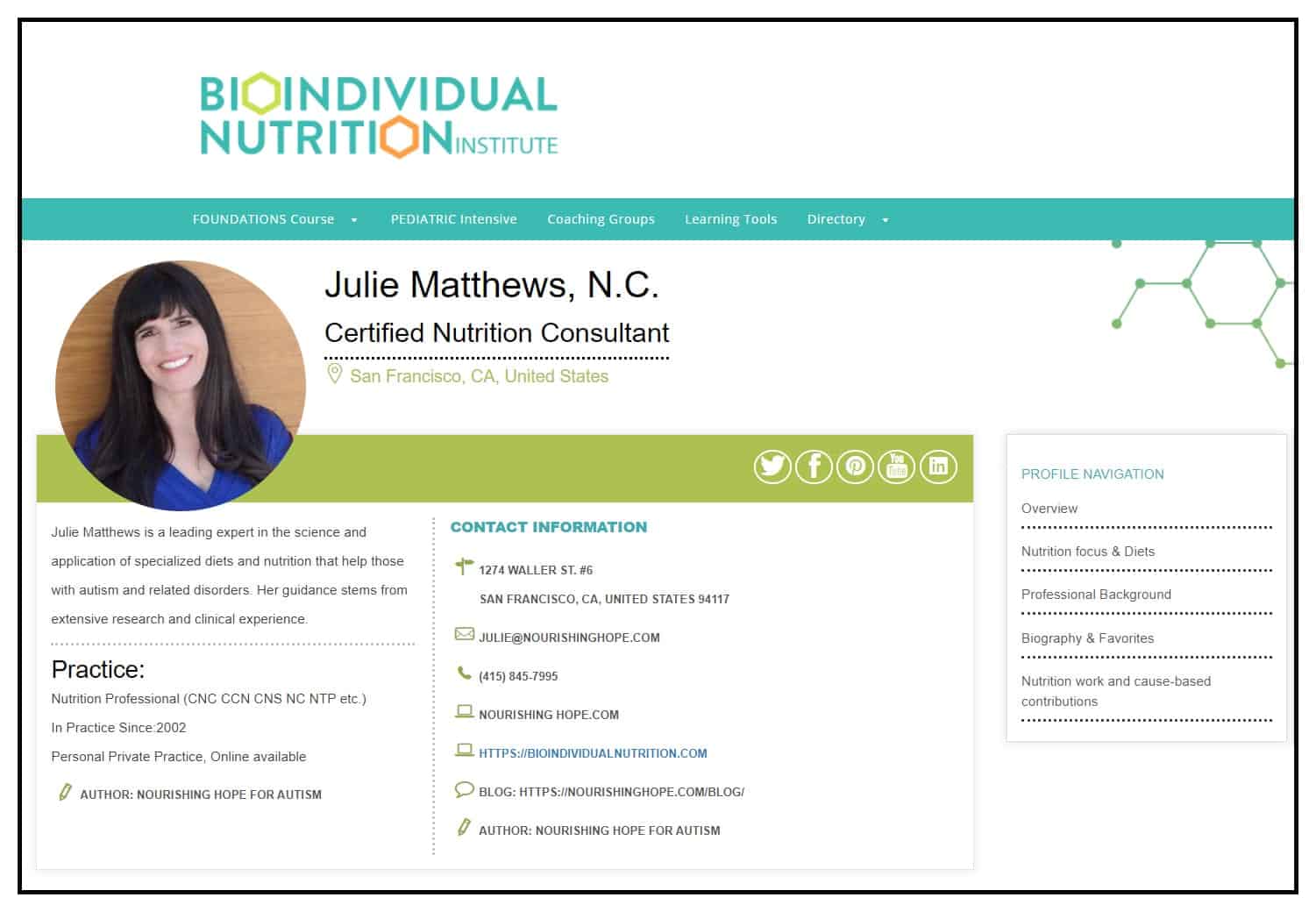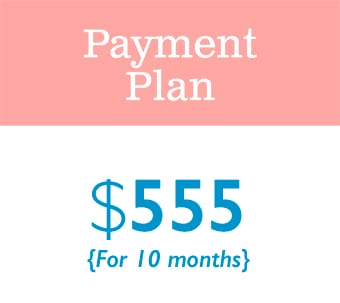Improve Your Clinical Results with Personalized Nutrition
Hard-to-detect food intolerances can cause chronic symptoms. Identifying and correcting imbalances requires clinical nutrition knowledge far beyondcustom and “best diet” approach or trending nutrition dogma.
Nutritional Therapists are prepared to…
• Master the science and practice of personalized bioindividual nutrition
• Get breakthrough results even with complex cases…
• Earn CEUs while becoming Certified in this effective approach
Introducing

The BioIndividual Nutrition practitioner training combines cutting edge nutritional science with proprietary tools, and a supportive NTA Coaching Group community.
Discover how to apply the methodologies from the BioIndividual Nutrition Training with the NTA’s NAQ, Functional Evaluation Technique, and Food Journal so that you can customize diets with precision and get remarkable results!

 “The BioIndividual Nutrition training has been one of the best investments for my career as a nutritionist. The course has been invaluable”
“The BioIndividual Nutrition training has been one of the best investments for my career as a nutritionist. The course has been invaluable”
Francesca Orlando-Baldwin, NTP, CGP
Board Certified in Holistic Nutrition
NTA Students and Practitioners
Whether you’ve been in practice for years or more recently completed your NTA nutrition education, you may know that “bioindividuality” is important and think you’re practicing it.
Clinicians today may think they practice bioindividuality, but most don’t realize how much they’re missing.
Nutrition science and therapeutic diet application has expanded greatly in recent years. New evidence demonstrates that many compounds found in foods, even very “healthy” foods, can cause serious reactions in certain people and even worsen conditions you’re trying to help.
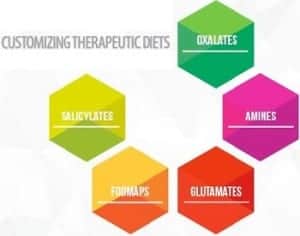 Recommending a healthy whole foods, gluten-free, grain-free diet, or Paleo diet is often not enough; as they do not address the individual biochemical needs of the person.
Recommending a healthy whole foods, gluten-free, grain-free diet, or Paleo diet is often not enough; as they do not address the individual biochemical needs of the person.
The latest nutrition science shows that many of our clients with chronic health conditions suffer with issues relating to oxalates, salicylates, amines, histamine, glutamate, and FODMAPS, as well as poor methylation, transsulfuration and sulfation.
VERY FEW practitioners are aware of these food substances, how to identify them, and how to truly customize a therapeutic diet according to their clients unique needs.
If you’re not up on the latest nutrition science and how to apply it clinically, you are missing an essential piece of how to practice functional nutrition. And without it, your nutrition recommendations may be completely ineffective.
As a Nutritional Therapist, it is essential that you learn to recognize and address these types of food reactions in order to improve the underlying biochemical factors which are causing your client’s symptoms.
Having this knowledge and skill sets you apart from other nutrition professionals in the field.
Our Advanced Training you will guide you in…
-
Understanding the science and thought process behind choosing among 12+ therapeutic diets, customizing them, and knowing how to avoid the pitfalls.
-
Using cutting edge tools like our lists of “symptom clusters” and food sensitivity categories
-
Streamlining your practice and improving compliance using targeted questionnaires, symptoms lists, diet summaries, guides & client handouts.
-
Getting support from a knowledgeable community of BioIndividual Nutrition Practitioners, including dozens of your NTA colleagues
Introducing

BONUSES
NTA Coaching Group Archive • NTA Savings • Earn 24 CEUs
The NTA Coaching Group was led by Julie Matthews (course instructor)
and Resolute Michaels NTP (NTA Group Leader)
FIVE Meetings about optimizing personalized bioindividual nutrition practice specifically for NTPs and NTCs

Julie Matthews, CNC

Resolute Michaels, NTP
“As a Nutritional Therapy Practitioner, the BioIndividual Nutrition training has been a great value to me. Gaining knowledge of the varied diets perfectly augments my NTA education and has helped me better support my clients’ diverse needs. I think every NTP, NTC or NTA student would benefit from Julie’s training – that I’ve taken on the role as a Group Leader. Join me in the upcoming NTA Coaching Group.”
Resolute Michaels, NTP
![]() “NTA endorses the BioIndividual Nutrition Training led by Julie Matthews.
“NTA endorses the BioIndividual Nutrition Training led by Julie Matthews.
She has created a Practitioner Group specific to the needs and career objectives of Nutritional Therapists. Based on our review of her curriculum and the positive experiences of NTA graduates, it’s excellent for Nutritional Therapists.“
Nutritional Therapy Association
About the Course Creator and Instructor
 Julie Matthews, BS NC is a globally respected nutrition expert, accomplished author, and inspirational educator. Her guidance is backed by her fifteen years of clinical experience and scientific research with complex neurological and physiological needs; particularly autism and related disorders.
Julie Matthews, BS NC is a globally respected nutrition expert, accomplished author, and inspirational educator. Her guidance is backed by her fifteen years of clinical experience and scientific research with complex neurological and physiological needs; particularly autism and related disorders.
She has lectured in more than 60 cities across three continents. She’s been on television, radio, newspaper, blogs/podcasts, published scientifically referenced articles in journals and websites. She’s been featured by Price-Pottenger, honored by the National Association of Nutrition Professionals, sits on two scientific advisory boards including the Autism Research Center, consulted for a soon-to-be-published university research study, and is a Certified Nutrition Consultant with a successful practice in San Francisco.
Julie is a dynamic speaker who has trained professionals at conferences for Integrative Medicine for Mental Health, Autism Research Institute/DAN!, Medical Academy of Pediatric Special Needs, and the MINDD International Forum in Australia. Now, nutrition professionals around the world embrace her comprehensive online training in bioindividual nutrition.
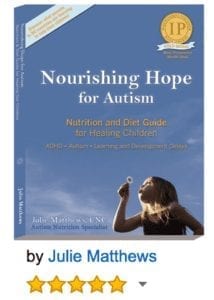 During her early nutrition studies back in 2001, Julie discovered that food and nutrition influenced the condition known as autism. She committed to investigate the connections then explain them to parents and clinicians that can make a difference helping children recover. Her final research paper at Bauman College became her award-winning book Nourishing Hope for Autism (which has an impressive 91% 5-Star rating on Amazon.com). It explains WHY food and nutrition affects the varied systems and biochemical pathways routinely occurring in autism and HOW to strategically apply a specialized diet to help children heal.
During her early nutrition studies back in 2001, Julie discovered that food and nutrition influenced the condition known as autism. She committed to investigate the connections then explain them to parents and clinicians that can make a difference helping children recover. Her final research paper at Bauman College became her award-winning book Nourishing Hope for Autism (which has an impressive 91% 5-Star rating on Amazon.com). It explains WHY food and nutrition affects the varied systems and biochemical pathways routinely occurring in autism and HOW to strategically apply a specialized diet to help children heal.
After many years in practice, it became evident to Julie that the dietary approaches that helped the most difficult clients, were useful in healing most chronic conditions. And because autism is one of the most complex disorders (with underlying immune/autoimmune, digestive, neurological, and metabolic dysfunction issues), it provides a unique perspective on chronic disease that helps Julie teach others to see hidden connections between symptoms, circumstances, and effective healing dietary strategies for a wide variety of complex conditions.
She founded Nourishing Hope to stand for the efficacy of improved diet and nutrition for autism, and the BioIndividual Nutrition Institute to share the synthesis of her knowledge with cutting edge clinicians to help improve their effectiveness with therapeutic diets.

What is BioIndividual Nutrition®
BioIndividual Nutrition is the science and clinical application of diet and nutrition intervention that is customized to the unique needs of an individual.
The principles behind BioIndividual Nutrition involve understanding chronic disease, determining bioindividuality, discovering how food affects biochemistry, mastering special diets, customizing nutrition strategy and evolving the diet.
Instead of trying to modify one dietary approach for different individuals, this approach utilizes a dozen diet strategies, in addition to close examination of relationships between symptoms and underlying biological pathways.
Foods affect chemistry and in turn, the body’s biochemistry influences the foods an individual can tolerate/eat. Understanding these relationships, identifying hidden connections between symptoms and sources, and knowing which recommendations to make is critical to your success as a practitioner.
What make one nutrition professional
more successful than another?
Specifically, why do some practitioner’s clients get radically better when others cannot figure out how to resolve their troublesome symptoms?
I’ve helped hundreds of clients with disorders resulting from complex neurological and physiological needs, and I discovered some interesting and important information that can help you…
I tend to see the “tough cases,” the “non-responders,” in my nutrition practice.
By the time they’ve come to me, clients have already seen 3 or more practitioners that have provided nutrition advice, yet they still have not gotten better. And I’ve always investigated why their prior practitioners were unsuccessful. As I explored each of their case history files, I uncovered what they had overlooked.
Here are 5 common errors that inhibit results; and insight to avoid them and improve your overall success.

Created for Professionals
that Use Diet and Nutrition in their Practice

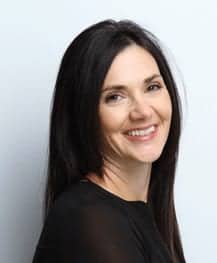
“I’m loving the BNI program and how it’s elevating my effectiveness in the clinical setting. Big wins for everyone!”
Brandin Roa, FNLP, NCP, CPCC, CPE, BCom
Functional Nutrition and Lifestyle Practitioner
What Professionals are Saying
“”I am a GAPS practitioner and I really needed the tools and resources your program teaches. I now feel confident that I will be able to… make a bigger impact on my community.””
“Julie walks you through case studies and you gain an understanding of the thought process to identify symptoms and suitable dietary interventions. This was the missing link for me.”
“Although my NTP training was excellent, the BioIndividual Nutrition course took my training to a higher level so I can help a much wider range of clients. My confidence as a practitioner has grown immensely.”
“Through the BioIndividual Nutrition training I gained comprehensive insight on a dozen healing diets; specifically learning about foods that may be causing stress – many of which were “healthy” foods. I have a new sense of confidence in suggesting what foods to eat and avoid.”
SIX PILLARS of BioIndividual Nutrition
…teaching you HOW to think rather than WHAT to think
so you can help every client,
no matter how complex
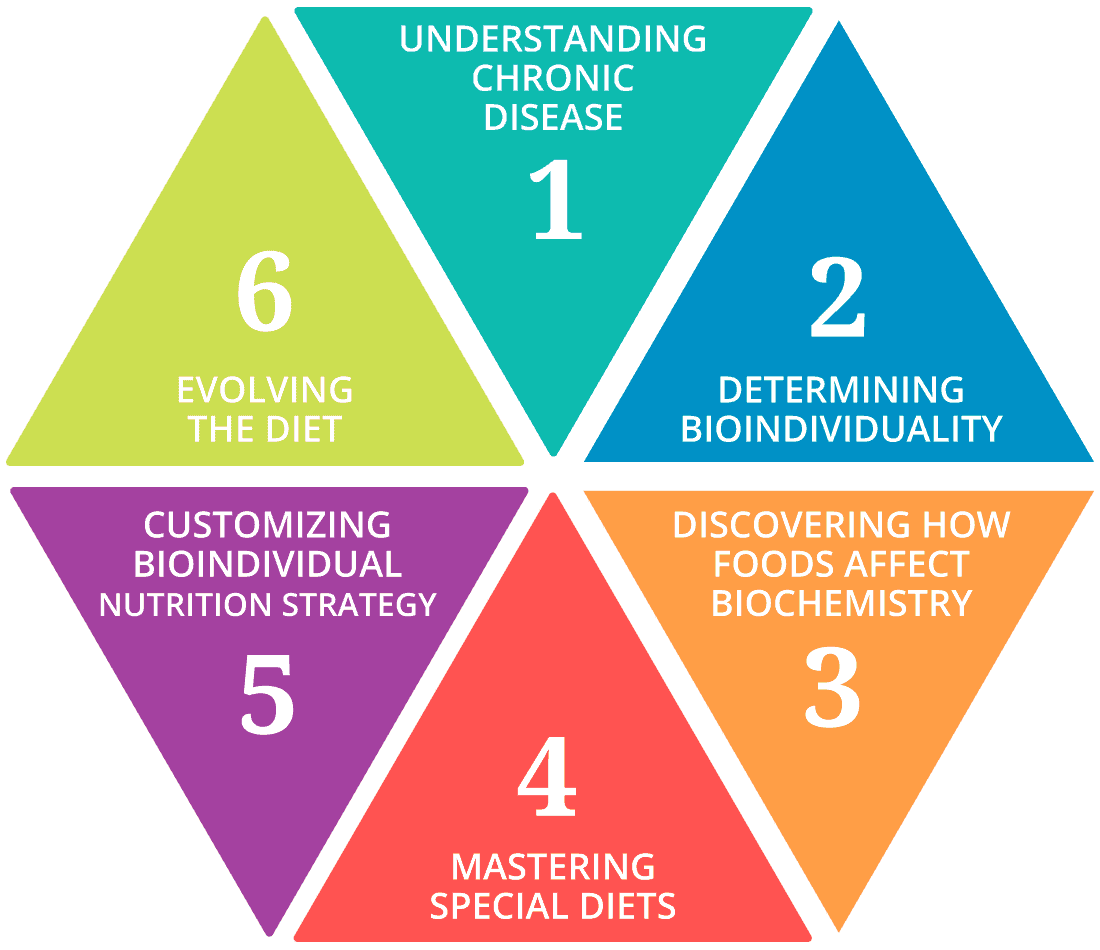
The Framework Behind the Course
BioIndividual Nutrition Methodolgy
Based on proven clinical results, not theory, our 6 Pillars of BioIndividual Nutrition will give you the framework and tools you need to make it easier for you to provide consistent results-oriented dietary guidance.
The BioIndividual Nutrition Training will empower you with nutrition knowledge and tools, and give you the confidence to work with complex chronic conditions.
Here are more of the nerdy details for those of us who love nutrition and biochemistry

UNDERSTANDING
CHRONIC DISEASE
As you learn our unified perspective for chronic disease, you’ll understand your client’s disease on a deeper level, so you be effective at applying special diets for the needs of clients with a wide range of chronic diseases.
The training program explores:
IBS & Digestive disorders
Autoimmune disorders
Anxiety & Depression
Autism & ADHD
Mitochondrial dysfunction
Methylation disorders
Neurological conditions
Hypothyroid & Hashimoto’s
Eczema and skin conditions
Asthma & Allergies
Obesity & Diabetes

DETERMINING
BIOINDIVIDUALITY
By learning to identify specific underlying factors like health history, environmental triggers, chronic conditions and symptoms, food reactions, and biochemistry, you gain a system that will enable you to get to the root of your client’s problem.
The training program explores:
Inflammation
Poor methylation
Poor sulfation
Poor digestion
Microbiome imbalance
Mitochondrial dysfunction
Poor detoxification
Genetics/Epigenetics/SNPs

DISCOVERING HOW FOODS
AFFECT BIOCHEMISTRY
As you learn how foods and little-known compounds inside them affect the body’s biochemistry and which symptoms they commonly produce, you will be able to detect and address “mysterious” symptoms other practitioners don’t understand.
The training program explores:
Salicylates & Phenols
Histamines & Amines
Glutamate
Oxalates
FODMAPS
Food allergens/ Sensitivities
Di- and Polysaccharides
Yeast containing foods
Nightshades
Sulfur/thiol foods
Purines
Lectins & Phytates

MASTERING
THERAPEUTIC DIETS
When you understand the intricacies of each therapeutic diet, how to use them, and practical implementation tips, you will feel confident helping your client implement any diet with the best tools and resources available.
The training program explores:
Gluten/Casein/Soy-Free
SCD & GAPS Diet
Paleo Diet
Autoimmune Paleo
Feingold Diet
Failsafe Diet
Low oxalate Diet
Body Ecology Diet
Low FODMAPs Diet
Ketogenic Diets
Rotation Diets
Elimination Diets

EVALUATING HOW FOODS
AFFECT BIOCHEMISTRY
By learning to create BioIndividual Nutrition Strategy plans incorporating our unique seven point method of determining diet direction, you will gain an effective methodology and clinical tools that make it quicker and easier to create effective plans for your clients.
The training program explores:
Food cravings
Diet record, food frequency
Reactions to foods
Common Symptoms
Laboratory testing
Genetics
Client considerations

EVOLVING
the Diet
When you improve tolerance, reassess dietary needs, and expand the diet, you help your client improve their dietary variety and nutrition to help them maintain the results they have gained and continue to improve and heal.
The training program explores:
Depleting factors & deficiencies
Underlying causes & biochemistry
Supplementation support
Lifestyle
Toxin avoidance
Dietary trial
Provocation food testing
Training Outline and Content
Instead of teaching a single dietary approach,
you get a framework, knowledge, and tools
to create advanced nutrition programs customized to individual need.
Course Overview
-
- 12 Modules – 28 hours of course content
- Audio/Video presentations
- PDF downloads of slides
- Transcripts
- MP3 recordings of all modules and lessons
- Clinical handouts Done-for-you
- Comprehensive Study Guide and Clinical Practicum Workbook
Done-for-You Clinical Handouts
- Ready to use handouts: GMO Guide,
- Toxin Guide, Food pyramid, and many more
- Personally-branded nutrition intake forms
- Easy to Use Clinical Charts
- Comprehensive Diet Guides
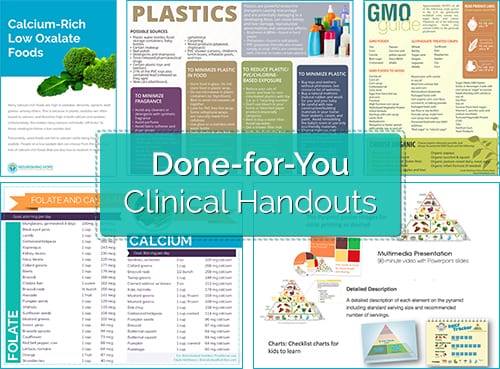
Comprehensive Diet Guides
For all of the following diets:
- GFCFSF
- SCD/GAPS
- Paleo
- Ketogenic
- Body Ecology Diet
- Low Oxalate
- Low FODMAPS
- Low Salicylate
- Low Salicylate, Amine and Glutamate
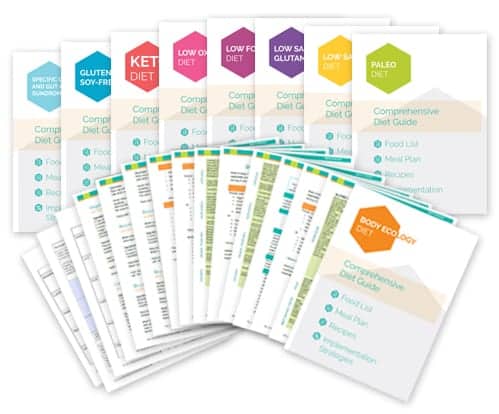
Each Comprehensive Diet Guide contains:
- Food lists: Expanded from a single page to 3-5 pages for comprehensive food choices.
- Meal plans: Each diet has a meal planning guide; including breakfast, lunch, dinner, snacks, sweet treats, and beverage ideas.
- Recipes: Each diet includes some recipes to get your clients started.
- Implementation strategies: Each diet has an overview with an explanation of the diet’s details and how to implement it, as well as worksheets you can use with your client to plan their personal strategy.
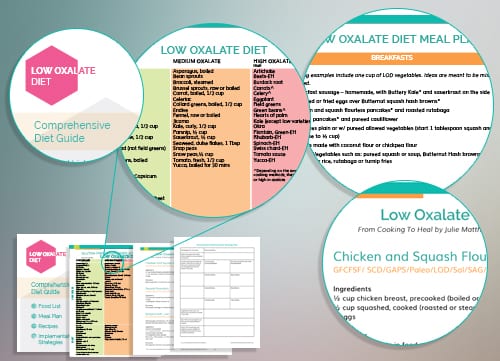
Bonus: COMBO Diet Guides
Value: $1897
These combination diet guides include food lists, meal plans, and recipes for 9 different diet combinations:
- Low oxalate AND Low Salicylate, Amine and Glutamate
- Grain-Free AND Low Salicylate, Amine and Glutamate
- Grain-Free AND Low oxalate
- Grain-Free AND Low oxalate AND LowSalicylate, Amine and Glutamate
- Elimination Diet
- Rotation Diets
- SCD/GAPS AND Low FODMAPs
- Autoimmune Paleo
- GFCFSF AND Low Salicylate AND Egg-free
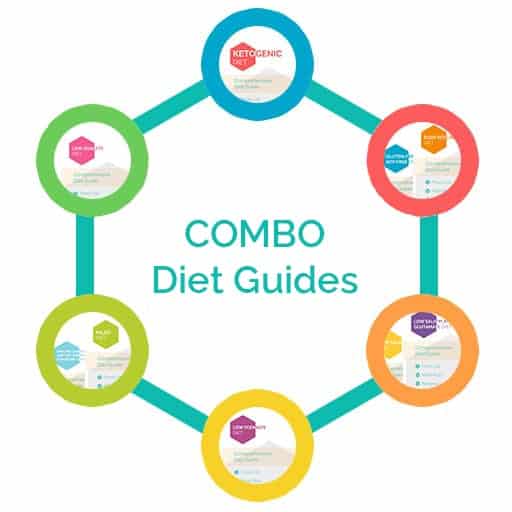
Practice Tools and Resources
- Online Clinical Diet Assessment Questionnaire
- Symptom/Diet Chart
- Decision-making flowchart
- Clinical Practicum guide
- Client tools plus Nourishing Hope for Autism (book) and Cooking to Heal (cookbook and videos)
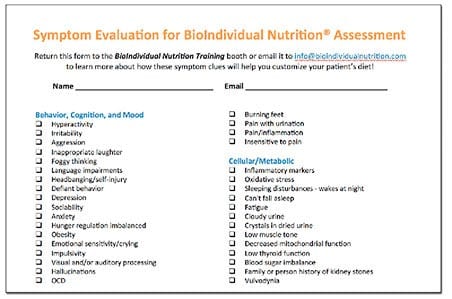
Foundations Curriculum
Each MODULE explained (1-12)
(click for details)
MODULE 1: BioIndividual Nutrition Foundations
We open the course with an investigation of chronic disease today and routinely observed underlying metabolic conditions, and I present my work with autism as a model for understanding and supporting all chronic disease. We discuss the need and factors for bioindividuality, and explore the practice of BioIndividual Nutrition.
MODULE 2: Special Diets for BioIndividual Nutrition
Next we get a firm understanding of the most common and effective “special” healing diets that every nutrition practicing professional should master. How they work, harmful assumptions about them to NOT make, tweaking the diets and addressing supplementation, and knowing when (or not) to use a special diet. Focus is on optimizing therapeutic effectiveness of your diet and nutrition strategy for each individual in your practice.
MODULE 3: Nutrition Best Practices – NEW Food Pyramid
In this module we discuss the synthesis of more than a dozen years’ research/practice into nourishing diets (vs. the standard mainstream diet). You’ll gain the Nourishing Hope Food Pyramid as a model for understanding and teaching good nutrition and dietary factors in your practice. Our Nourishing Hope Food Pyramid flexible enough to apply to all healing diets. Deeper insight on foods groups, macronutrients, nutrient boosters, and foods not on the pyramid set a foundation for creating customized and effective dietary strategies to address all disease.
MODULE 4: Allergen-free Diets, Gluten-free Casein-free
We explore the practical application of common elimination diets, based on avoidance of known or suspected aversive foods/substances. Allergies vs. sensitivities vs. intolerances; gluten, dairy, and soy, lectins in grains, wheat proteins and exorphins, wheat germ agglutinin, zonulin, celiac and non-celiac gluten intolerance, autoimmune cross reactivity, symptoms and conditions of gluten intolerance, elimination diets/rotation diets are investigated in depth.
MODULE 5: The Specific Carbohydrate Diet (SCD) vs. GAPS
Further exploring healing diets, we compare in great detail two grain-free and starch-free diets: the SCD and GAPS diets, discussing the specific carbohydrate diet; its origins and purpose, and differences in the GAPS diet. We investigate the strategic application of each approach; deciding which diet, understanding di-saccharides and polysaccharides, and how to adapt the diets as needed to address additional underlying biochemical concerns, while not neglecting good nutrition.
MODULE 6: Addressing Dysbiosis & Optimizing GI Support
We look thoroughly at the relationship between gastrointestinal health and chronic disease today, then detail the most effective dietary approaches for addressing gastrointestinal issues. We discuss the importance of the microbiome in health and chronic disease, and highlight: SIBO, Low FODMAPs, Yeast, and the Body Ecology Diet, as well as the use of other special diets discussed on the course for GI support.
MODULE 7: Low Phenol and Amine Diets
The course next covers a very important yet often unknown and underutilized dietary approach. You’ll learn from someone who has been putting these principles of low phenol and amine diets in practice for 15 years and has development an understand of the common symptoms and conditions these dietary approaches can address, how to implement them, and how to improve tolerance to foods containing: phenols, salicylates, histamines, other biogenic amines, and glutamates. Sulfation biochemistry is explored, associated diseases, the role of the microbiome, and how to improve sulfation and phenol/amine intolerance with diet, supplementation, and other factors. We learn about diets high in phenols/amines and diets to adapt for low phenol/amine needs. I explain the ins and outs of the Feingold and Failsafe diets too; when to choose; how to create your own custom approach, and how to implement.
MODULE 8: Oxalates and The Low Oxalate Diet
Diving deep into oxalates, we discover one of the most poorly understood yet crucial dietary strategies, that takes us far beyond a diet used for kidney stone support. We unearth the science and research on oxalates and their influence on: inflammation, oxidative stress, mitochondrial damage, and more. We investigate which diets tend to be high oxalate, when it’s a problem, and how to adapt, as well as factors outside of dietary consumption that are crucial to understand. You will learn strategies to safely implement the low oxalate diet in your practice, and how to engage further low oxalate principles such as supplementation support.
MODULE 9: Paleo, Low Carb, and Ketogenic Diets
Here we discuss the Paleo diet; it’s advantages and pitfalls, how it differs from other grain-free diets, and common misconceptions. We also explore in this module, low carbohydrate diets and various ketogenic diets; when to use or avoid these approaches.
MODULE 10: Methylation and Mitochondria
This is a favorite module included in this program by popular demand, as it discusses two very important topics essential in customizing nutrition strategy: methylation and mitochondrial dysfunction. We discuss and explain the process of methylation, tying it back to transsulfuration and sulfation biochemistry and complementary dietary strategies. We consider the implications of poor methylation, SNPs, and gene expression. We also explore mitochondrial function and go much further into the subject than simply mitochondrial disease, instead exploring mitochondrial function and dysfunction in many health conditions including autism. We discuss the connection between methylation and mitochondrial function and how to support both. You will learn which symptoms and conditionals can be associated with poor methylation and mitochondrial function, and supplementation and diets to use/not use to address these issues.
MODULE 11: Laboratory Testing & Supplementation
The course gets linear as we study laboratory testing, particularly functional tests. Explicitly, we explore how to determine nutrient need and hone dietary approach based on laboratory testing. We outline common nutrient deficiencies and supplementation to support nutrient repletion and how supplementation can support and improve tolerance of food reactions.
MODULE 12: Practicing BioIndividual Nutrition
We now bring it all together and highlight how to develop dietary strategy and BioIndividual Nutrition approach. Most importantly you’ll learn how to improve food tolerance, variety, and nutrition, a crucial approach often missed in most special diet discussions. Improving tolerance to foods is possible and is important to overall health and healing success in your practice. We cover symptoms commonly associated with food reactions, you’ll learn how to determine diet(s) approaches as needed, as well as receive access to a symptom guide and our online based dietary questionnaire to assist in gathering data and discerning dietary direction. You’ll discover our proprietary model for creating a customized BioIndividual Nutrition strategy with details on combining diets, tightening the rules of a diet, when and how to break the rules of a diet, and how to hone and evolve a diet over time as tolerance improves.
Masters Series Webinars
Masters Webinars are available only to Members of the BioIndividual Nutrition Training and Certification program. These sessions will include guest speakers, scientific advisory board members, and others for more in depth scientific discussions.
Blog, Newsletter & Continuing Education
Our Blog includes insights and recent research, relevant news, Member spotlights, case studies, and more. Members may contribute articles, research, and collaborate in meeting Institute and Member educational and program objectives.
Private Forums & Facebook Group
Connect with colleagues on the latest in nutrition news, science and research using our forums and other online tools. Protecting the privacy of patients and practitioners is very important to us. Also connect online via private Facebook group.
What Professionals are Saying

“Julie Matthews knowledge of various diets and the unique healing quality of food ranks her as one of the top nutritional scientists in the field today.”
Dr Kurt Woeller
Medical Director Integrative Medicine Academy

“Julie Matthews is a pioneer in the field of functional nutrition. I’m forever grateful for the additional knowledge that we have due to her dedicated work in the field of bioindividual nutrition.”
Andrea Nakayama
Functional Nutritionist, Replenish PDX
Is this Program for You?
The BioIndividual Nutrition Training is an advanced, “graduate” level training for professionals with existing nutrition consulting/coaching or professional healthcare qualification that make diet and nutrition recommendations in their business or healthcare practice

You are a healthcare professional or educator (Integrative Physician, Nutritionist/Dietician, Naturopath. Health Coach, etc.)

You’re familiar with gluten-free casein-free, grain-free, paleo, and GAPS diets

You’re filling the gaps from your training in nutrition

You want to know the science (why) behind therapeutic diets

You want to better align diet/nutrition strategy to symptoms, knowing which diet and why
Common Professional Advantages
Increased Clinical Success
with More People
“I use what I’ve learned through the BioIndividual Nutrition Training on EVERYONE. My practice is not just children with autism spectrum disorders. I attract all kinds of clients and have success with challenging clients who have complicated diseases.”
“Made everything dealing with diets for neurological issues that much more clear. Mind expanding! Incredible!”


Increased Clinical Success
with More People
“I use what I’ve learned through the BioIndividual Nutrition Training on EVERYONE. My practice is not just children with autism spectrum disorders. I attract all kinds of clients and have success with challenging clients who have complicated diseases.”
“Made everything dealing with diets for neurological issues that much more clear. Mind expanding! Incredible!”

Connection to a Community Experts
“The best part was connecting with the other smart and devoted practitioners in the FB community. That was HUGE! Being able to run things by expert colleagues and get suggestions, ideas on supplements, products, etc. The group conversations are so helpful.”
“Expert community of practitioners at your fingertips for questions! Saves you months or YEARS of research!!”
Stronger Self Confidence
– Know your stuff!
“This course does an amazing job describing the diets, comparing them, and explaining why you would use one over the other. I felt SO much more confident to work with the clients I wanted. It opened up a whole new world!”
“Having the tools and resources of your program is what I needed. I now feel confident that I will be able to reach more families and children.”
“Before even completing the program, I was able to apply and see results from the new information I had learned. My confidence as a practitioner has grown immensely – thank you Julie!


Stronger Self Confidence
– Know your stuff!
“This course does an amazing job describing the diets, comparing them, and explaining why you would use one over the other. I felt SO much more confident to work with the clients I wanted. It opened up a whole new world!”
“Having the tools and resources of your program is what I needed. I now feel confident that I will be able to reach more families and children.”
“Before even completing the program, I was able to apply and see results from the new information I had learned. My confidence as a practitioner has grown immensely – thank you Julie!

Condense Your Learning Time
“This was the missing link for me in guiding clients to making dietary choices specific to their needs.”
“I found the ONE course that had EVERYTHING I needed to know about this topic!”
“I opened my practice and started using the BNI info right away.”
Become a Certified BioIndividual Nutrition PractitionerTM (CBNP) and be listed in our Global Clinician Directory
Join clinicians from 48 countries that are Members of the BioIndividual Nutrition Institute. They embrace the advanced understanding and capability that our program provides. Meet MDs, Naturopaths, Nurses, Registered Dietitians, Certified Nutritionists, Acupuncturists, Health Coaches, and more. The Global Online Directory includes Members that have completed our training and passed the course examination.
There is tremendous need for qualified health professionals that can work with the varied dietary programs specific to certain health conditions. Julie’s course provides you the knowledge to establish a niche specialty that is highly marketable for your personal business.
Enrollment is OPEN!
BioIndividual Nutrition Training and NTA Coaching Group
When you enroll, you get full access to the 12 online video training modules, MP3s, client handouts, symptoms/diet charts, step-by-step guides, PLUS access to our Private Facebook group,
PLUS live online NTA Coaching Group sessions!
![]()
BIOINDIVIDUAL
NUTRITION TRAINING
Course Content & Materials
![]()
PRIVATE
PRACTITIONER GROUP
Questions/get support
![]()
COACHING GROUP
Monthly Sessions with
Julie Matthews, NC
INCLUDES the following BONUSES

NTA Coaching Group
Join alongside/meet other NTPs & NTCs • 4 Live (& recorded) Video Coaching calls • Private FB Group • Q&A with Julie & Resolute Michaels
$497 Value
Join Now!
Make 10 Payments or Pay in Full
Time to Enroll & GET the NTA Coaching Group & SAVINGS (through May 15th)
When you enroll, you get IMMEDIATE & UNLIMITED access to ALL online training modules, MP3s, client handouts, symptoms/diet charts, step-by-step guides, meal plans, the BONUS COMBO MEAL PLANS, and ONGOING access to our Private Facebook group, and live monthly online Coaching Group sessions!
TWO Training Courses
Our advanced nutrition training program is unprecedented. Instead of teaching one dietary approach – Julie Matthews provides knowledge and tools to customize your diet and nutrition approach to each individual.

1) Nourishing Hope Training
Comprehensive Training in the Nutrition Science and Clinical Practice of Individualized Diet and Nutrition Intervention. It provides broadly applicable advanced nutrition knowledge and tools, information on over a dozen therapeutic diets, and explains how to adapt diets for individual food allergies and sensitivities such as gluten, dairy salicylates, amines, glutamates, oxalates, FODMAPS.
Information on over 20 diets: Gluten-free casein-free, allergen-free, elimination diets, yeast diets, SCD, GAPS, Low oxalate, Body Ecology, Feingold, Failsafe, low FODMAPS, Modified Atkins, Paleo diet, Primal diet, and more.
Outline: Course 1 |
| MODULE 1: BioIndividual Nutrition Foundations MODULE 2: Special Diets for BioIndividual Nutrition MODULE 3: Good Nutrition – Food Pyramid MODULE 4: GFCF and Allergen-free Diets MODULE 5: SCD vs. GAPS MODULE 6: Dysbiosis and Diets for GI Support MODULE 7: Low Phenol Diets MODULE 8: Oxalates and The Low Oxalate Diet MODULE 9: Paleo, Low Carb, and Ketogenic Diets MODULE 10: Methylation and Mitochondria MODULE 11: Laboratory Testing & Supplementation MODULE 12: Determining BioIndividual Diet |

2) Nourishing Hope for Pediatric Intensive
Specialized Training in Nutrition for Children, Autism, ADHD and other Special Needs. Julie Matthews explains the underlying biochemistry, common nutrient deficiencies, and the most effective diets used for children’s special needs based on her 14 years of research and clinical practice.
While the Foundational Course provides broadly applicable advanced nutrition training – Nourishing Hope for KIDS gets specific – focusing on autism, ADHD, and related childhood disorders. Julie Matthews is the world’s leading nutritionist for children with autism; this is first advanced nutrition training program – explicitly focused on this audience.
Outline: Course 2 |
| MODULE 1: Biochemistry of Autism, ADHD and other Chronic Childhood Disorders MODULE 2: Nutrient Deficiencies in Autism and Other Conditions MODULE 3: Digestion and the Microbiome in Autism MODULE 4: Behavior and Energy Regulation MODULE 5: Special Diets for Children MODULE 6: Case Studies of Autism and other Childhood Disorders MODULE 7: Meal Planning and Recipes for Children & Support for Picky Eaters |
Nourishing Hope for KIDS
BioIndividual Nutrition Training – Applied to Childhood Disorders…
Children require a DIFFERENT approach.
The course was created for practitioners that work with autism ADHD, special needs, and children’s nutrition.
You cannot apply the same food and nutrition approach to children as you do for adults. Children have different tastes and texture preferences. Diets and meal ideas may need to be adjusted for children. They tend to be picky eaters. They have different nutritional needs
After speaking with and working with thousands of families, I’m convinced that to be successful working with children you need a different strategy than working with adults. While some children don’t require “kids meals” they all still need to be tailored to the growth, repair, and special developmental requirements of children.

-
Discover the underlying biochemistry of autism and special needs and how to use food and nutrition to help
-
Become aware of how to adapt special diets to the palate of a child
-
Learn how to work with children that are picky eaters
-
Distinguish what diets to be careful of that might not be appropriate for certain children
-
Gain additional learning/teaching tools for parents and children as well as special clinical handouts
-
Learn meal planning for families following special diets
Diet & Nutrition Strategy – Through the LENS of Autism
Autism is a complex disorder. It can involve underlying inflammation, oxidative stress, microbiome imbalance, nutrient deficiencies, methylation challenges, mitochondrial issues, digestive disturbances, and immune system dysregulation. Each child is different and needs a unique set of recommendations, include diet and nutrition suggestions to help support the underlying concerns. Food reactions and intolerances are common, and foods can be either helpful or harmful depending the individual circumstances, so food recommendations must be tailored to the individual.
The Founder of BioIndividual Nutrition Institute, Julie Matthews, has specialized in autism for the last 15 years, she is the author of Nourishing Hope for Autism. Through her research and clinical experience she has learned how to help children improve and support their underlying biochemistry, food reactions and intolerances, and help them recover.
 She has learned that children with autism are the “canaries in the coalmine,” informing us that we have too many toxins and nutrient deficiency that have affected our genetic expression, as well as exposure to environmental triggers that are harming the development of our children as well as our health. Fortunately by understanding the underlying factors and conditions affecting autism, we can use food and nutrition to improve the health, happiness, learning and behavior of children, and help them lead a better quality of life.
She has learned that children with autism are the “canaries in the coalmine,” informing us that we have too many toxins and nutrient deficiency that have affected our genetic expression, as well as exposure to environmental triggers that are harming the development of our children as well as our health. Fortunately by understanding the underlying factors and conditions affecting autism, we can use food and nutrition to improve the health, happiness, learning and behavior of children, and help them lead a better quality of life.
WATCH THIS!
Content Overview for BOTH Courses
Additional Child and Family Specific Tools Included with this Course
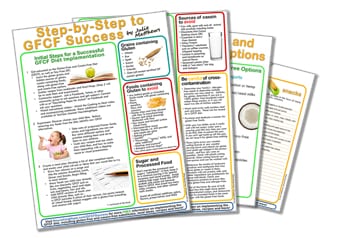 |
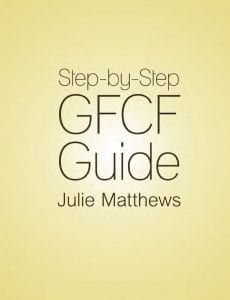 |
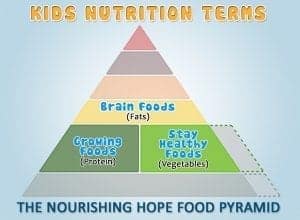 |

1) Nourishing Hope Training

2) Nourishing Hope for Pediatric Intensive
CLICK to Enroll in BOTH Courses for NTA Practitioners and Students:
CLICK to Add-On the Nourishing Hope for KIDS Course
(you must already been enrolled in the Bioindividual Nutrition Training – use SAME email address)

30-Day Money Back Guarantee – Julie stands behind her work.
We want you to be satisfied with your enrollment and participation and are confident that this course will exceed your expectations. You have 30 days to review the course material, participate in live sessions, and connect with other practitioners in our private Facebook forum to ensure that the program is right for you. If it’s not, email us to arrange a refund!
“My interest is Autoimmune,
will this program help me?”
“I work with kids,
which program is for me?”
“How does this course differ?
Why did you create it?”
Frequently Asked Questions
Not sure if this course is for you?
Option 1: Simply continue to see clients in the same way that you have been, perhaps feeling a bit uncertain about which diet to use and how to implement it, and likely getting less than the optimal results you’re looking for, struggling with compliance, and spending nights researching solutions online, and trying to find time to make handouts, lists, and guides for each client.
Option 2: You can decide to study all the information on this website and do the research yourself on the 12+ therapeutic diets. The graduates of our program actually TOLD us they were attempting to do this for YEARS before they found our program and it was overwhelming, lonely, and confusing. The information on each diet is scattered everywhere, and the online info is often completely wrong or misleading. Plus there are hundreds of books to read and summarize. And then you’ll have to create summary docs, symptoms charts, and “how to” handouts for each diet! That will take about… 5 years give or take. But you STILL won’t have the invaluable clinical experience and guidance from practitioners who’ve been using these diets for 15+ years!
Option 3: Don’t reinvent the wheel, enroll in the training! The hard work has already been done for you! It has taken years of time: practicing clinically, reading hundreds of books and research papers, studying science and biochemistry, listening to medical doctors and researchers lecture, and creating the client tools… Did I mention 15 years?! The information and tools come directly from real life clients which makes the information tried and tested. And, you’ll have an expert community of practitioners at your fingertips to connect with who you can ask questions to. Our graduates have told us that this resource alone was the worth the tuition of the course.

Frequently Asked Questions & Answers
TOP Questions asked…
1 | What's The Time Commitment For This Course?
When you enroll, you get full access to course and proceed through the training at-your-own-pace. Each person’s learning style and opportunities for study time vary. Some commit a few hours per month, some a few hours per week. Some go slowly, some dive in. You have unlimited access and no obligations to attend anything. Bonus meetings and special member presentations are recorded and archived, everything remains available as you proceed through the training, and you get all future updates!But as a rough idea, each module takes about 2½ hours to watch or listen to, and there are 12 modules. Additionally, there is reading and research you’ll be interested in exploring related to each module. A number of graduates studied 3 hours/1 Module per week, and completed the course in about 3 months. Others scheduled 2 hours a month and took over a year.
Some people don’t bother with the exam at all, if they don’t want/need the certification and have only focused on the specific modules they need for the scope of their practice.
Other students are studying individual modules as they need them for specific ailments in their clients. The course could be used as a powerful reference guide when certain conditions come up or when you suspect issues with certain compounds.
We’ve heard stories from members that have spent 1 year JUST implementing the powerful strategies and handouts they learned in ONE of the modules and found it transformational in their practice and personal health.
2 | I’ve Already Done A Ton Of Training Programs, Completed A Nutrition Certification, And Taken Several Other Online Courses. So I’m Already Familiar With And Use These Special Diets In My Practice. Do I Need This Training?
Yes! All of our graduates already have a primary certification and education in nutrition. Most of our students are are nutrition professionals and others are doctors or naturopaths who use therapeutic diets in their practice. Our graduates have told us that this training is like nothing else they have taken.
The course material goes far beyond what is taught in any nutrition school or certification program out there, or what you’re able to learn on your own.
For example, you may enroll already knowing about low phenol diets, but during the training program, you will learn details about how to help you clients implement that diet, how it works, why it works, what the underlying biochemistry is, so you can also determine nutrients they might need or additional support.
Julie Matthews, the course creator, has worked with these special diets for over 15 years, so she adds her clinical expertise to the 20-40 years of published data on each diet.
Another example is the Failsafe diet… you will learn many variations of this life-changing diet that are used in clinical practice, such as modified versions, Failsafe vs. Feingold diet, more restrictive versus less restrictive food lists, several ways to implement it depending on the client and other limitations, different strategies on how to challenge foods back in, troubleshooting which food chemical is the problem, implementing low salicylate only vs low amine only with a more strict and less strict list of foods.
In addition, the case studies will help you understand the thinking about how to apply the right diet or multiple diets into a strategic nutrition plan.
Diving deeper into each diet, you’ll also learn nutrients that can support the biological pathways to improve tolerance, lifestyle changes that support these pathways, other reasons they may be depleted, such as dysbiosis and how to address it, as well as how to implement this into a larger nutrition strategy plan.
All this detail learning how to make modifications for each client is based on many years of clinical experience and simply cannot be obtained from books or internet research!
Accelerate your learning by condensing my 15 years of clinical experience into a few months.
The training tools include: diet implement handouts, professional food lists, online questionnaire tools, and intake forms to make it more time efficient for you during consultations.
3 | I Don’t Want To Run Lab Tests. How Much Of This Course Focuses On Lab Testing.
No problem! Only a small fraction of this course focuses on lab testing. We train professionals from many different disciplines. Some run lab tests and others do not.
It is not necessary to run labs to get all the valuable information you need to make diet and nutrition recommendations.
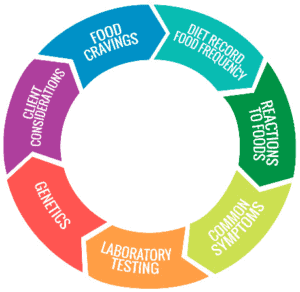 There are 7 factors I teach in my BioIndividual Nutrition training program and lab testing is only one of them. They include:
There are 7 factors I teach in my BioIndividual Nutrition training program and lab testing is only one of them. They include:
- Food cravings
- Diet record, food frequency
- Reactions to foods
- Common Symptoms
- Laboratory testing
- Genetics
- Client considerations
You can implement just a few of the 7 factors from the course and still obtain outstanding results with your clients
4 | Will This Course Give Me Nutrition Credentials? Will I Be Certified In Anything? I’m A Health Coach And I Want Nutrition Credentials. Is This Course Right For Me?
This course will grant you credentials to practice nutrition in your state if you aren’t currently allowed to do so with your existing credentials. Yet, it will provide the tools and “graduate” level education that will augment your existing healthcare credentials.
In addition, the graduates of this training program will receive a certificate and may call themselves “Certified BioIndividual Nutrition Practitioners”.
The program is open to any professional in practice who is already making diet and nutrition recommendations.
Students who pass the course exam can become listed in our online Practitioner Directory!
5 | I Don’t Do Facebook. Is Your Training Only “A Game Changer” If You Participate In The Facebook Group?
No, it is not essential that you participate our Private Facebook Group. About half of our members do and half do not.
If you are not currently using Facebook, and do not wish to use it, that will not impact your learning of the course material. The private FB Group is just an added benefit to our program but it certainly is not an essential part of it. The training material is taught through a dedicated member login page and not through Facebook.
However, if you are curious to connect with other practitioners who are enrolled in your course or want to check out the conversation topics and types of questions being asked, you may want to consider creating a private username profile (which you don’t share with any friends/family), and use it strictly to connect with our Private Group of BioIndividual Nutrition practitioners and students.
About the Training
Do you have to be a certified nutritionist?
No. The program is open to professionals in practice that make diet and nutrition recommendations. Our Members include nutrition consultants, dietitians, as well as medical doctors, naturopaths, nurses, health coaches, and more. You bring your own credentials – our program is not a credentialing program. It is an advanced nutrition course geared towards active practitioners from varied disciplines. The course provides acumen and tools that augment existing healthcare credentials. Practitioners can become listed in our Practitioner Directory.
Does this course certify me to practice nutrition in my state?
No. This training does not provide certification to legally practice nutrition. To practice nutrition, individuals must have a primary nutrition certification and must follow the laws in their state and country. SEE PREVIOUS QUESTION
Can people outside the United States participate in this course?
Yes. This course is fully online so people can participant from any country and any time zone. We have Members from 22 nations. And, as with those in the United States, you should ensure to follow the laws in your own country regarding specific scope of practice.
Who gets listed in the Online directory?
Practitioners can become listed in our Practitioner Directory when the pass the comprehensive exam after each course. Other individuals and resources can become listed in our Community Directory. SEE EARLIER QUESTION
About the Enrollment Process
When you enroll in the BioIndividual Nutrition Training, ALL course Modules and content are available to you, as is the link to the exam, and the ability to immediately create your online profile – which initially is shared with other Members, and you can join the Member’s private Facebook group to connect and present questions.
- The course is designed to be “taken” accordingly: proceeding through modules sequentially, engaging the reading along the way. Initially the course was delivered weekly, and many new students align with a weekly schedule because they can work it in. Others dive in, and complete the whole course in a month – the variance is tremendous, as it should be – since each professional’s life is unique. The training course empowers clinicians in many ways.
- The exam should be taken when you are ready; after completing all modules and feeling comfortable with the learning from the course. There are 50 multiple choice questions, drawn from the content of the course (no sneaky questions from readings). You have 60 minutes to complete the exam, closed book, you cannot reference course content while taking the exam. Ninety percent correct is required to pass. Any wrongly answered questions are shown to you after the exam; you can review them and take the exam again. That is, if you don’t pass the exam the first time, you can take it twice more. Once you pass the exam, your online profile becomes public in our online directory.
Is there a certain timeframe to complete the course?
Not at all. The courses is study “at-your-own-pace,” you have as much time as needed to proceed through the training. You have unlimited access to the course content and materials.
What is the time commitment to complete the course?
No. This training does not provide certification to legally practice nutrition. To practice nutrition, individuals must have a primary nutrition certification and must follow the laws in their state and country. SEE PREVIOUS QUESTION
Is there an exam for this course? Is it open book? Is there a minimum pass rate?
Members that wish to be listed in our online Practitioner Directory must pass a comprehensive exam after the course. It is a closed book, timed, exam that requires a passing score of 90%.
What if I don’t pass the first time?
You have three chances to pass the exam. If you don’t pass, the incorrect questions are revealed to help you further study the material.
CEUs
Are CEUs available?
Those associated with the Nutritional Therapy Association can earn 24 CEUs for each course. Many of their graduates have enrolled and benefitted from the course.
What about other schools/organizations?
We’re fully open to working with any organization, though do not currently have the capacity to pro-actively reach out to this/that one (hopefully soon, since the need/opportunity is tremendous). I’ve chatted with many Members (those enrolled in the course….) also seeking CEUs, leaving (for now) it up to them to learn what’s required for CEUs at their organization, then connecting with us to see if we can align/make it happen.
We’re quite transparent and fully support efforts at accreditation. Feel free chat more with us about this…

